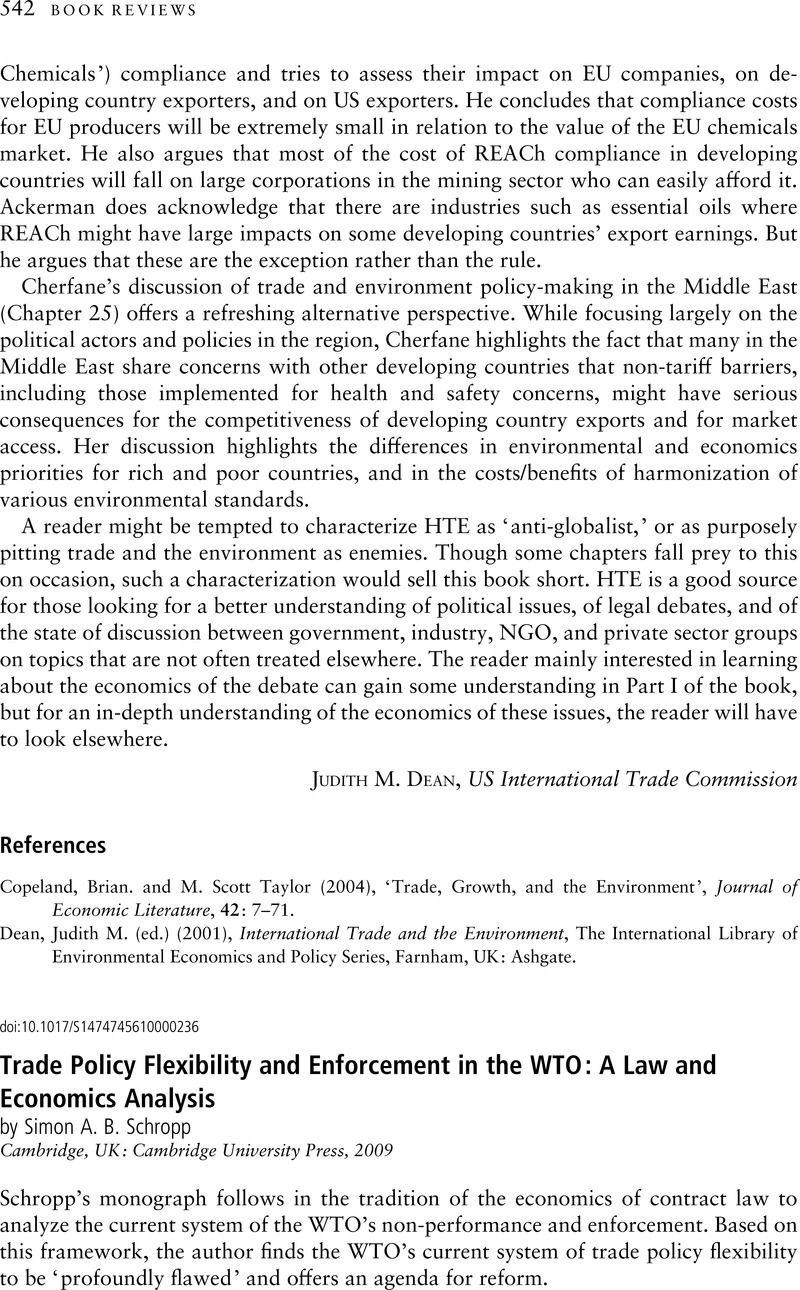Bagwell, Kyle W. (
2008), ‘Remedies in the WTO: An Economic Perspective’, in
Janow, M. E.,
Donaldson, V. J., and
Yanovich, A. (eds.),
The WTO: Governance, Dispute Settlement and Developing Countries,
Huntington, New York:
Juris Publishing.
Google Scholar 